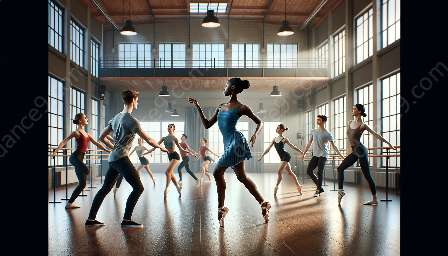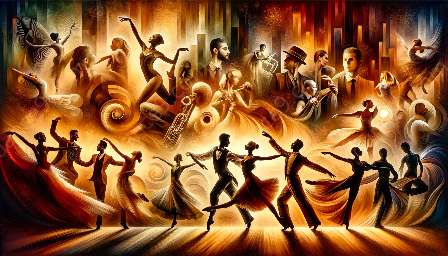Dance has evolved from a form of artistic expression to a viable profession with exciting career prospects in the modern world. As society embraces the value of dance and its associated benefits, professional dancers are presented with various opportunities to build sustainable and fulfilling careers.
The Evolution of Dance as a Profession
The perception of dance as a mere hobby or recreational activity has shifted over the years, leading to a recognition of dance as a legitimate career path. With the expansion of entertainment industries, including stage performances, television, and film, the demand for skilled dancers has significantly increased. Additionally, the proliferation of social media platforms has provided dancers with new avenues to showcase their talents and reach wider audiences, further contributing to the professionalization of dance.
Diverse Career Paths for Dance Professionals
Professional dancers can pursue various career paths, ranging from performance and choreography to teaching and dance therapy. In the performance realm, opportunities exist in ballet companies, contemporary dance troupes, commercial dance productions, and musical theatre, offering dancers the chance to engage in diverse artistic endeavors. Moreover, the rise of dance-focused reality shows and competitions has created platforms for dancers to gain exposure and garner professional opportunities.
Choreography presents another avenue for dance professionals to showcase their creativity and skill. Choreographers work across different settings, such as stage productions, music videos, and fashion shows, shaping movement sequences that resonate with audiences and elevate artistic experiences. This dynamic career path allows dancers to imprint their artistic vision on various productions, contributing to the richness of the performing arts.
Furthermore, the field of dance education holds promising prospects, with opportunities to teach at dance studios, performing arts schools, and community centers. Dance educators play a pivotal role in nurturing the next generation of dancers, imparting technical proficiency, artistic interpretation, and a deep appreciation for the art form. Additionally, dance therapists utilize movement as a therapeutic tool, addressing physical, emotional, and psychological challenges, thereby making a meaningful impact in healthcare and wellness settings.
Benefits of Pursuing a Career in Dance
The decision to pursue a career in dance offers a multitude of benefits beyond the artistic expression itself. Physically, dancers develop exceptional strength, flexibility, and cardiovascular endurance through rigorous training and performance demands. The discipline and dedication required in dance training cultivate a strong work ethic and resilience, traits that are transferable to various aspects of life and professional endeavors.
Mentally, the creative and expressive nature of dance promotes cognitive agility, emotional intelligence, and the ability to communicate non-verbally. Dancers often develop heightened spatial awareness, heightened sensory perception, and a keen sense of rhythm, attributes that enhance holistic cognitive functioning. Emotionally, the pursuit of dance as a career fosters self-confidence, self-discipline, and the capacity to manage stress effectively, instilling invaluable life skills that extend beyond the dance studio.
Socially, the collaborative nature of dance cultivates strong interpersonal skills, adaptability, and teamwork, as dancers frequently collaborate with peers, choreographers, and directors. The global reach of dance allows for cross-cultural interactions, enabling dancers to appreciate diverse perspectives and experiences, fostering a sense of inclusivity and cultural understanding. Moreover, the performing arts industry provides opportunities for networking and professional growth, encouraging dancers to build a supportive community and expand their professional connections.
In summary, the modern world presents diverse and promising career prospects for dance professionals, encompassing performance, choreography, education, and therapy. The numerous benefits of pursuing dance as a career go beyond the realms of physical, mental, and emotional well-being, extending to the development of valuable life skills and the cultivation of a supportive professional network.











































